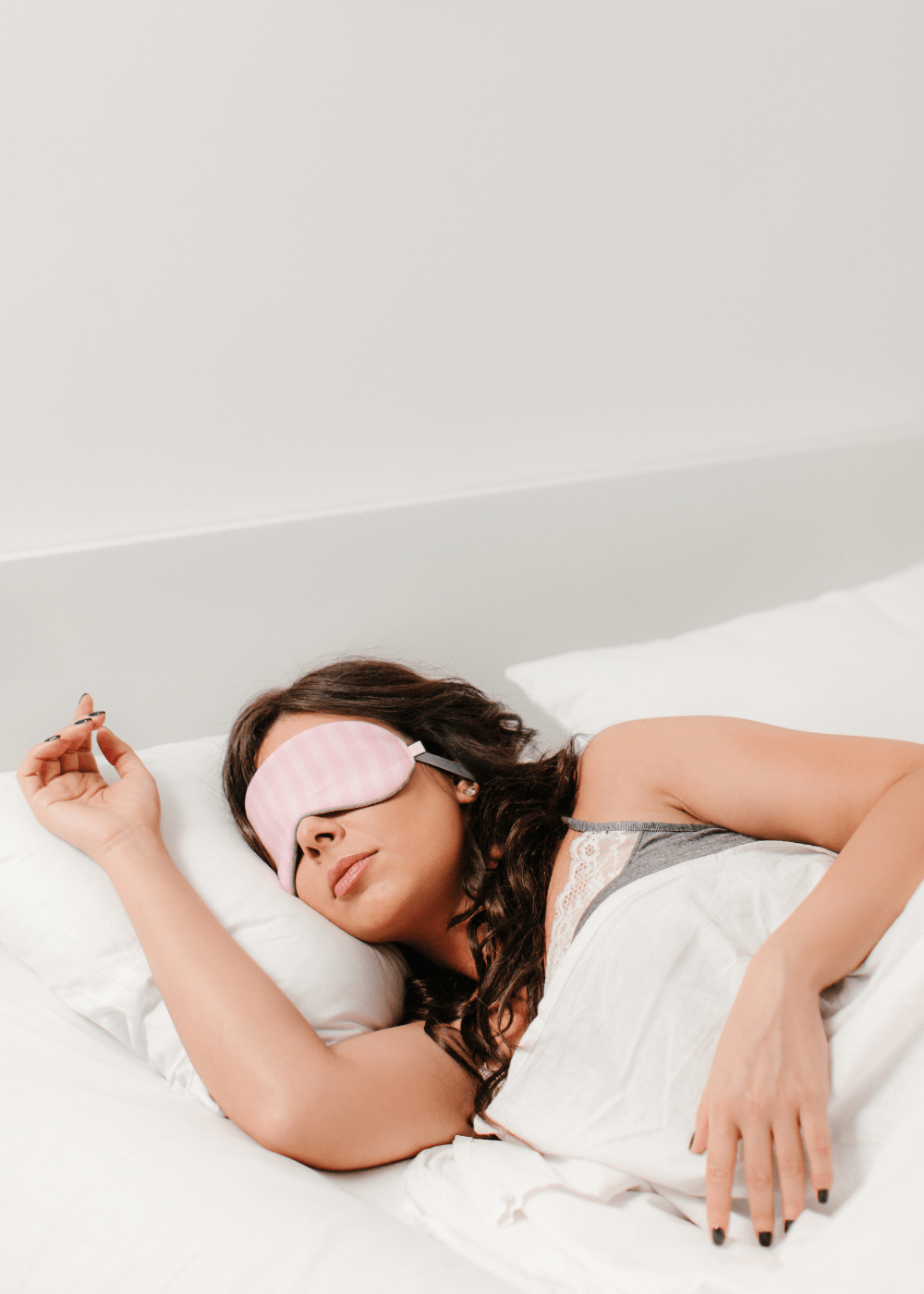You might be familiar with the common symptoms of sleep apnea: snoring, gasping for air during the night, and daytime fatigue. However, did you know that sleep apnea can affect women differently than men? In fact, according to the American Sleep Association, sleep apnea is 50-75% more common in men. Nevertheless, an estimated 22 million Americans suffer from sleep apnea—and that includes women. One of the most alarming things to me is that most people don’t even know they have it. This can lead to many other health issues, especially if left untreated.
I’ve talked about my personal diagnosis with sleep apnea (mostly over on social media) as I was diagnosed in 2021. Please feel free to to send me an email or message at any time if you have any questions. This blog post covers the basics of what sleep apnea is so that you might recognize some symptoms that you or someone you know may have.
What is sleep apnea in general?
It’s a condition in which your breathing is interrupted during sleep, causing you to startle awake and gasp for air. It can happen dozens or even hundreds of times per night, preventing you from getting the deep, restful sleep you need. As a result, you might feel exhausted during the day, despite spending 7-8 hours in bed.
How does sleep apnea differ in women?
One key difference is that women are more likely to have “mild” or “moderate” sleep apnea, while men are more likely to have “severe” sleep apnea. Women are also more likely to develop sleep apnea during menopause, when hormone levels fluctuate. In addition, sleep apnea in women is often linked to obesity, pregnancy, and GERD (gastroesophageal reflux disease). However, you don’t have to have any of these mentioned conditions to have sleep apnea. I’m a good example of that.
Signs of Sleep Apnea in Women
Do you think you might have sleep apnea? If that’s the case, then here are signs of sleep apnea in women and what it may look like:
Waking Up Tired
One of the most common signs of sleep apnea is fatigue during the day. If you find yourself needing to take naps or struggling to make it through the day without yawning constantly, it could be a sign that you have sleep apnea.
Morning Headaches
Another common symptom of sleep apnea is waking up with a headache. This is caused by a lack of oxygen to the brain during the night. If you often wake up with a headache, it could be a sign of sleep apnea.
Difficulty Concentrating
Because sleep apnea can cause fatigue, it can also make it difficult to concentrate during the day. If you find yourself having trouble remembering things or staying focused at work or school, it might be due to undiagnosed sleep apnea.
Waking Up Frequently During The Night
One final sign of sleep apnea is waking up frequently during the night. This can be caused by gasping for air or feeling like you’re suffocating during the night. If you find yourself waking up multiple times per night, it’s worth talking to your doctor about whether or not you might have sleep apnea.
How do you get help with sleep apnea?
If you think you might have sleep apnea, the first step is to talk to your doctor. They can help you determine whether or not you have the condition and what the best treatment options are. There are a variety of treatments for sleep apnea, so there’s sure to be one that’s right for you. I sleep with a cpap machine. It took some getting used to and I definitely don’t care for it. However, I absolutely feel better, so it’s worth using. You don’t need to suffer from sleep apnea any longer, get the help you need today.

This is my cpap machine and mask. I use it almost every night and even travel with it.

This is a stock photo. I haven’t had the nerve to post a photo of myself with my mask on yet.

 Less Stress? Sign Me Up!
Less Stress? Sign Me Up! Sleep Apnea in Unlikely Individuals: My Update
Sleep Apnea in Unlikely Individuals: My Update Understanding Rosacea
Understanding Rosacea Have You Checked Your Skin Lately?
Have You Checked Your Skin Lately?

Gosh, I wish my husband would take this more seriously. I know he has it and yet he ignores it.
XOXO
Jodie
http://www.jtouchofstyle.com
I know what you mean Jodie. My husband was diagnosed with it and doesn’t use his cpap machine because he doesn’t have the patience to find a mask that will work well for him. So frustrating!
How do you get use to the cpap? I think the anxiety over using it will keep me from falling asleep. Do you take sleeping pills? What mask is most comfortable and least invasive?
Hi Roz, I will tell you that it takes time to get used to wearing a cpap for sleep. I still struggle to this day. Are you new to wearing one? I personally have tried several masks and found the Dream Wisp to be my most compatible so far. It’s a nasal mask and goes over the entire nose, which I find to be easier for breathing. I don’t feel the air blowing around in it. I have to wait until I am super tired to fall asleep. I often count sheep, as silly as that may sound. Take your time getting used to it. Just try to wear it for longer periods each night. Eventually you will feel better and look forward to wearing it. I also play white noise so that I don’t hear myself breathing in the mask. I just use an app and put it under my pillow on my phone. Good luck and let me know if you want to know anything else. Stacie 🙂